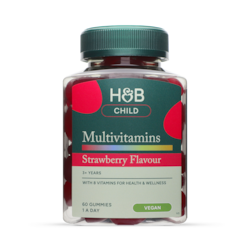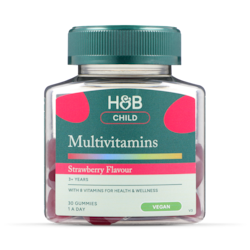15% off £30 OR 20% off £40
Vitamin A
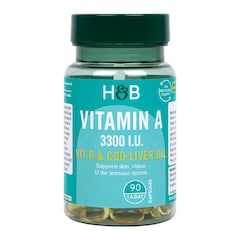
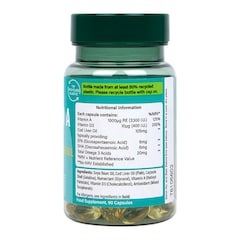
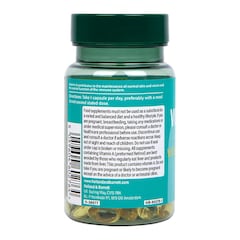
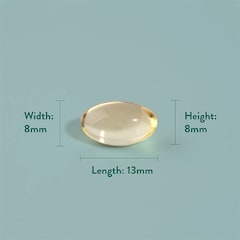
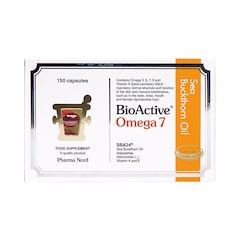
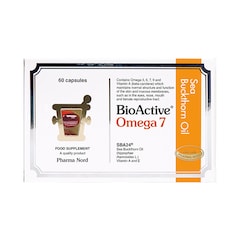
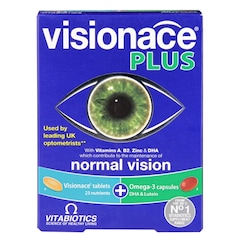
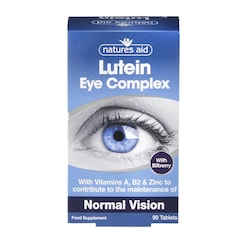
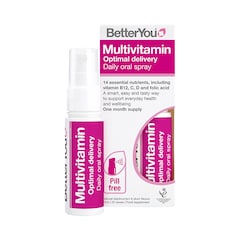
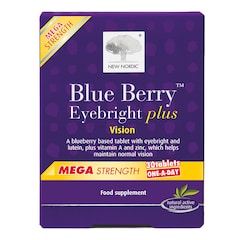
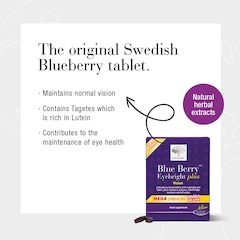
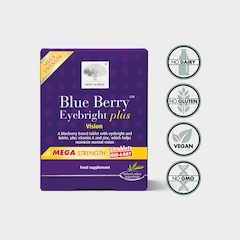
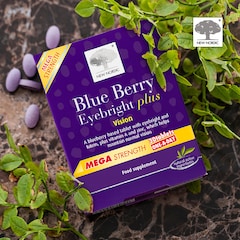
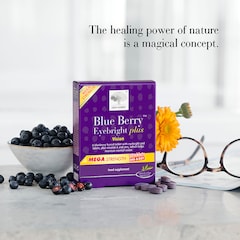
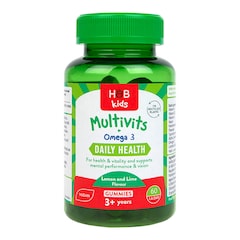
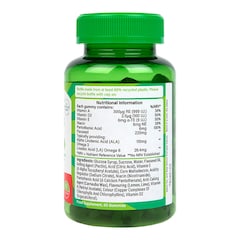
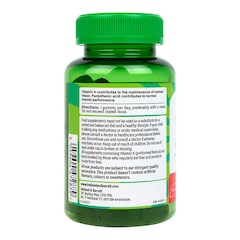
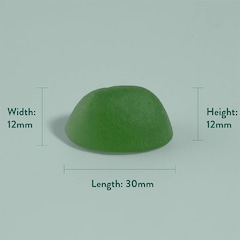
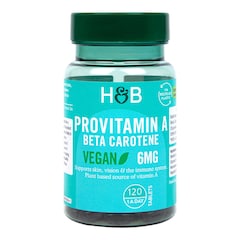
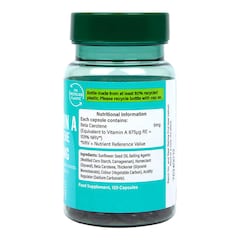
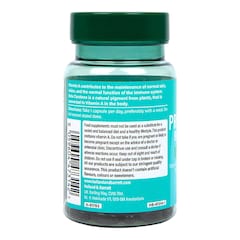
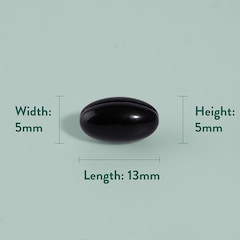
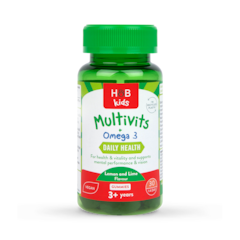
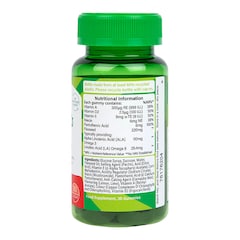
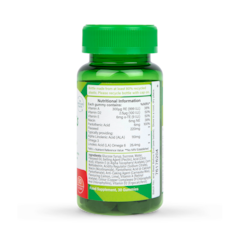
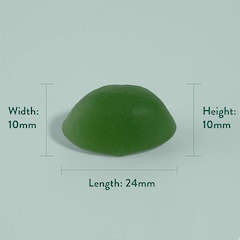
Shop Vitamin A at Holland & Barrett
There are a number of reasons why someone might choose to take additional vitamin A supplements.
Most likely they have heard it can helpful in supporting the eyes, skin or mucous membranes.
If you have ever heard the terms “retinol” or “beta-carotene” in relation to food or skincare, it is likely you already know a little about vitamin A.
What is vitamin A?
The nutrient vitamin A is vital for our bodies.
Vitamin A helps support vision, skin, cell function, normal immune system function and the metabolism of iron in the body.
We normally get vitamin A from our food. And there are two types:
Retinoids
The first type are retinoids – most commonly, retinol – which are found in meat and dairy products.
Carotenoids
The second type is carotenoids – such as beta-carotene – which are found in fruit and vegetables, including carrots.
While our bodies can use the vitamin A from retinoids straight away, they must first process carotenoids in order to make retinoids.
Either way, both meat eaters and those on plant-based diets, such as vegans, can get most– if not all – of their vitamin A requirements from a well-balanced diet.
Our livers then store vitamin A for later use.
If you are interested in the science, these check out our articles ‘Why Your Skin Loves Vitamin A’ and ‘Vitamin A In Pregnancy’ on our Health Hub for more information.
Which foods naturally contain vitamin A?
To get more retinoids in your diet, make sure to eat plenty of fish (oily fish such as salmon is particularly good), dairy products (think milk, yoghurt, butter and cheese), eggs, and prawns.
Liver and liver pate are rich sources of vitamin A if consumed in moderation – once a week is recommended by the NHS.
This avoids a large build-up of vitamin A in the liver, which may otherwise become problematic over the long term.
For vegans and anyone on a plant-based diet, go for plenty of carrots, tomatoes, sweet potatoes, and leafy green vegetables, such as kale, cabbage and spinach.
Fruit can also be a great source of carotenoids, especially mangoes, apricots and plums.
Vitamin A deficiency
Not getting enough vitamin A can cause problems for our immune system.
Vitamin A deficiency is rare in the UK these days, but symptoms can include poor night vision increased susceptibility to becoming ill and anaemia.
Vitamin A for skin and gums
Because vitamin A is so beneficial to skin condition, skincare brands regularly advertise “retinol” as an ingredient on their products.
Benefits to using extra vitamin A in skincare are said to include smoothing the appearance of fine lines and wrinkles; exfoliating skin cells and helping to avoid pores from clogging.
However, it is more beneficial to the quality of your skin in general that you consume enough vitamin A in your diet.
Vitamin A for eyes
If you have ever brushed off the idea that carrots can help you see in the dark as just an age old ruse for making you eat your vegetables, then it is time to re-think!
Carrots are full of beta-carotene, which the body uses to make vitamin A, so there is a lot of truth in it!
Carotenoids collect in the eyes and act almost like sunglasses, absorbing the harmful blue rays from sunlight that can otherwise damage retinal cells.
Without carotenoids, we can develop poor vision, especially in dim light.
When it comes to taking supplements for eyes, vitamin A is indisputably one of the most important as it helps maintain normal vision.
There are several supplements developed specifically with eye health in mind.
Examples include New Nordic BlueBerry Eyebright Plus, Vitabiotics Visionace Plus and Natures Aid Lutein Eye Complex.
Vitamin A supplements
If you are looking for a general vitamin A supplement, Holland & Barrett have two great options.
Our vitamin A capsules also contain fish liver oils for omega-3 and vitamin D.
However, if you do not need the extras and are just looking for beta-carotene, you might like to opt for our beta-carotene capsules.
If tablets aren’t for you, there are other ways of taking vitamin A, including in a spray, such as BetterYou MultiVit Oral Spray or in liquid form from Holland & Barrett Cod Liver Oil Pure Liquid.
Vitamin A gummies
One of the most fun ways for kids to take their vitamins is via gummies or soft capsules. And kids vitamin A is no different.
Holland & Barrett Healthy Kids range offers a fantastic selection of multivitamins for children, including Multivitamins plus Omega-3.
Along with vitamin A you may also find vitamin B, vitamin C, vitamin D and vitamin E supplements beneficial.
Shop Vitamin A at Holland & Barrett
There are a number of reasons why someone might choose to take additional vitamin A supplements.
Most likely they have heard it can helpful in supporting the eyes, skin or mucous membranes.
If you have ever heard the terms “retinol” or “beta-carotene” in relation to food or skincare, it is likely you already know a little about vitamin A.
What is vitamin A?
The nutrient vitamin A is vital for our bodies.
Vitamin A helps support vision, skin, cell function, normal immune system function and the metabolism of iron in the body.
We normally get vitamin A from our food. And there are two types:
Retinoids
The first type are retinoids – most commonly, retinol – which are found in meat and dairy products.
Carotenoids
The second type is carotenoids – such as beta-carotene – which are found in fruit and vegetables, including carrots.
While our bodies can use the vitamin A from retinoids straight away, they must first process carotenoids in order to make retinoids.
Either way, both meat eaters and those on plant-based diets, such as vegans, can get most– if not all – of their vitamin A requirements from a well-balanced diet.
Our livers then store vitamin A for later use.
If you are interested in the science, these check out our articles ‘Why Your Skin Loves Vitamin A’ and ‘Vitamin A In Pregnancy’ on our Health Hub for more information.
Which foods naturally contain vitamin A?
To get more retinoids in your diet, make sure to eat plenty of fish (oily fish such as salmon is particularly good), dairy products (think milk, yoghurt, butter and cheese), eggs, and prawns.
Liver and liver pate are rich sources of vitamin A if consumed in moderation – once a week is recommended by the NHS.
This avoids a large build-up of vitamin A in the liver, which may otherwise become problematic over the long term.
For vegans and anyone on a plant-based diet, go for plenty of carrots, tomatoes, sweet potatoes, and leafy green vegetables, such as kale, cabbage and spinach.
Fruit can also be a great source of carotenoids, especially mangoes, apricots and plums.
Vitamin A deficiency
Not getting enough vitamin A can cause problems for our immune system.
Vitamin A deficiency is rare in the UK these days, but symptoms can include poor night vision increased susceptibility to becoming ill and anaemia.
Vitamin A for skin and gums
Because vitamin A is so beneficial to skin condition, skincare brands regularly advertise “retinol” as an ingredient on their products.
Benefits to using extra vitamin A in skincare are said to include smoothing the appearance of fine lines and wrinkles; exfoliating skin cells and helping to avoid pores from clogging.
However, it is more beneficial to the quality of your skin in general that you consume enough vitamin A in your diet.
Vitamin A for eyes
If you have ever brushed off the idea that carrots can help you see in the dark as just an age old ruse for making you eat your vegetables, then it is time to re-think!
Carrots are full of beta-carotene, which the body uses to make vitamin A, so there is a lot of truth in it!
Carotenoids collect in the eyes and act almost like sunglasses, absorbing the harmful blue rays from sunlight that can otherwise damage retinal cells.
Without carotenoids, we can develop poor vision, especially in dim light.
When it comes to taking supplements for eyes, vitamin A is indisputably one of the most important as it helps maintain normal vision.
There are several supplements developed specifically with eye health in mind.
Examples include New Nordic BlueBerry Eyebright Plus, Vitabiotics Visionace Plus and Natures Aid Lutein Eye Complex.
Vitamin A supplements
If you are looking for a general vitamin A supplement, Holland & Barrett have two great options.
Our vitamin A capsules also contain fish liver oils for omega-3 and vitamin D.
However, if you do not need the extras and are just looking for beta-carotene, you might like to opt for our beta-carotene capsules.
If tablets aren’t for you, there are other ways of taking vitamin A, including in a spray, such as BetterYou MultiVit Oral Spray or in liquid form from Holland & Barrett Cod Liver Oil Pure Liquid.
Vitamin A gummies
One of the most fun ways for kids to take their vitamins is via gummies or soft capsules. And kids vitamin A is no different.
Holland & Barrett Healthy Kids range offers a fantastic selection of multivitamins for children, including Multivitamins plus Omega-3.
Along with vitamin A you may also find vitamin B, vitamin C, vitamin D and vitamin E supplements beneficial.



